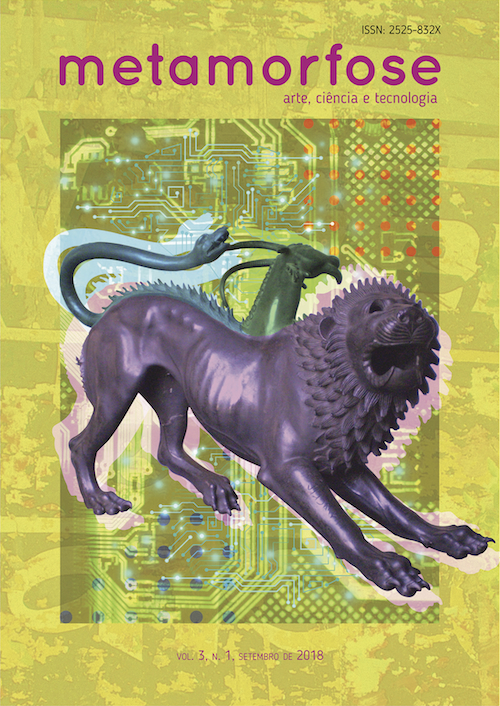The becoming of Styroworm - food for thought on how to respond
Resumo
Styroworm's emergence is an incarnation of new materialist philosophies and as foodstuff t challenges its surroundings to deal with their responseabilities.Downloads
Referências
References
(1) Accumulation and fragmentation of plastic debris in global environments.
Available from:
https://www.ncbi.nlm.nih.gov/pmc/articles/PMC2873009/ [accessed Oct 1,2017]
(2) Biodegradation and Mineralization of Polystyrene by Plastic-Eating Mealworms: Part 1. Chemical and Physical Characterization and Isotopic Tests (PDF Download Available). Available from: https://www.researchgate.net/publication/282046766_Biodegradation_and_Mineralization_of_Polystyrene_by_Plastic-Eating_Mealworms_Part_1_Chemical_and_Physical_Characterization_and_Isotopic_Tests [accessed Oct 2, 2017].
(3) Donna Haraway, Cyborg Manifesto. In the introduction of her fiction fact Cyborg Manifesto, Haraway states that the boundary between social reality and science fiction is actually only an optical illusion.
(4) following Karen Barad’s statement from an interview with Rick Dolphijn and Iris van der Tuin in New Materialism: Interviews & Cartographies. An imprint of MPublishing – University of Michigan Library, Ann Arbor, 2012.
(5) M. Serres, Parasite, 191. I’m following Serres’ analysis that the eaten comes before the eater, the host before the guest.
(6) G. Deleuze, Difference and Repetition.
(7) Karen Barad, Agential Realism.
(8) Vilém Flusser. Kommunikologie weiter denken. Die Bochumer Vorlesungen.
(9) Deleuze & Guattari, A Thousand Plateaus, 324-35.
(10) PlasticsEurope. Plastics, The Facts 2014/2015, An Analysis of European Latest Plastics Production, Demand and Waste Data; PlasticsEurope: Brussels, Belgium, 2014.
(11) Edible Insects: Future Prospect for Food and Feed Security (Fao Forestry Paper)
(12) Jane Bennett, Vibrant matter: a political ecology of things, 41/42.

